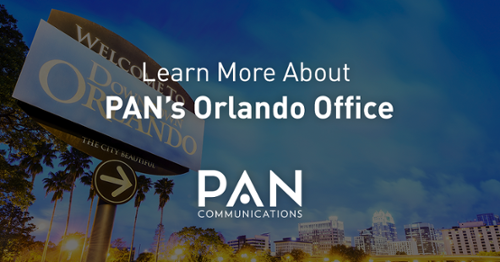When surveying the Orlando technology landscape, there is a clear and growing population of early-stage organizations. Orlando has become a desirable location for many companies to build a foundation due to its strong talent pool, low-cost living expenses, and entrepreneurial spirit. In fact, according to the 2017 Kauffman Index for Startup Activity, out of the top 25 largest states in the country for start-up activity, Florida came in fourth, right behind California, Arizona and Texas.

For these early-stage organizations, a successful growth marketing campaign can be the difference between sinking or swimming. The main objective is to create credibility. Likely in the throes of Series A or Series B funding, an early-stage organization is still relatively unknown, as are its products and/or service offerings. A well strategized growth marketing campaign will help to build an early-stage organization’s presence, show its value, drive momentum for its partner ecosystem, and encourage repeat interaction from truly engaged customers.

For those Orlando-based organizations looking to launch its brand in the coming months, below are four important tactics that should be part of marketing efforts:
1. Know your messaging and positioning
For organizations that have secured early-stage funding, or perhaps are in the midst of pursuing, it’s essential to have your messaging and positioning down pat before even thinking about launching your brand. What is the value proposition of your technology and/or service offering, and how are you simplifying things for your customers? For many, this often requires taking a step back and understanding your target market personas, reflecting about their needs, desires and, ultimately, buying patterns. Additionally, make sure you have a good sense of the competitive and market landscape. Conduct SWOT analyses for your brand, but also your competitors, and know the key differentiators to ensure diversification.
2. Stay ahead of the news cycle curve
Today’s fast paced news cycle presents ample opportunity to insert brands into the latest trends. A sound media relations strategy offers the opportunity to tie a brand to current industry happenings and promote itself in the process. Even better, with sound messaging and positioning, a company can easily parlay itself to be front and center within customer dialogue.
3. Refine and amplify content
Building credibility is a fundamental component when looking to engage customers at the early-stage. Establishing a thought leadership bench and building out executive commentary and bylined opportunities works to position executives, and your company, as knowledge experts. Find ways to insert yourself into trending conversations and offer a point of view that sparks conversation and industry fodder. From there, amplify your exposure across digital channels.

4. Support engagement and encourage advocacy
You can’t discuss early-stage marketing tactics without social media. Real-life interactions and engagement with not just customers but also industry influencers are priceless ways to drive momentum behind a brand. When launching your social channels, establish a protocol and leverage your organization’s message and value proposition. Drive interactions with customers and key influencers and contribute to industry dialogue to build your following and establish brand advocates. Once these are in place, consider engaging in paid social campaigns.
While there are a number of growth marketing tactics for early-stage companies, these are just a few that organizations, particularly in start-up hotbeds like Orlando, should note. The beginning phases for a company is an exciting time, and with growth marketing tactics in place, organizations will be able to effectively build the brand, drive momentum, and acquire customers.


